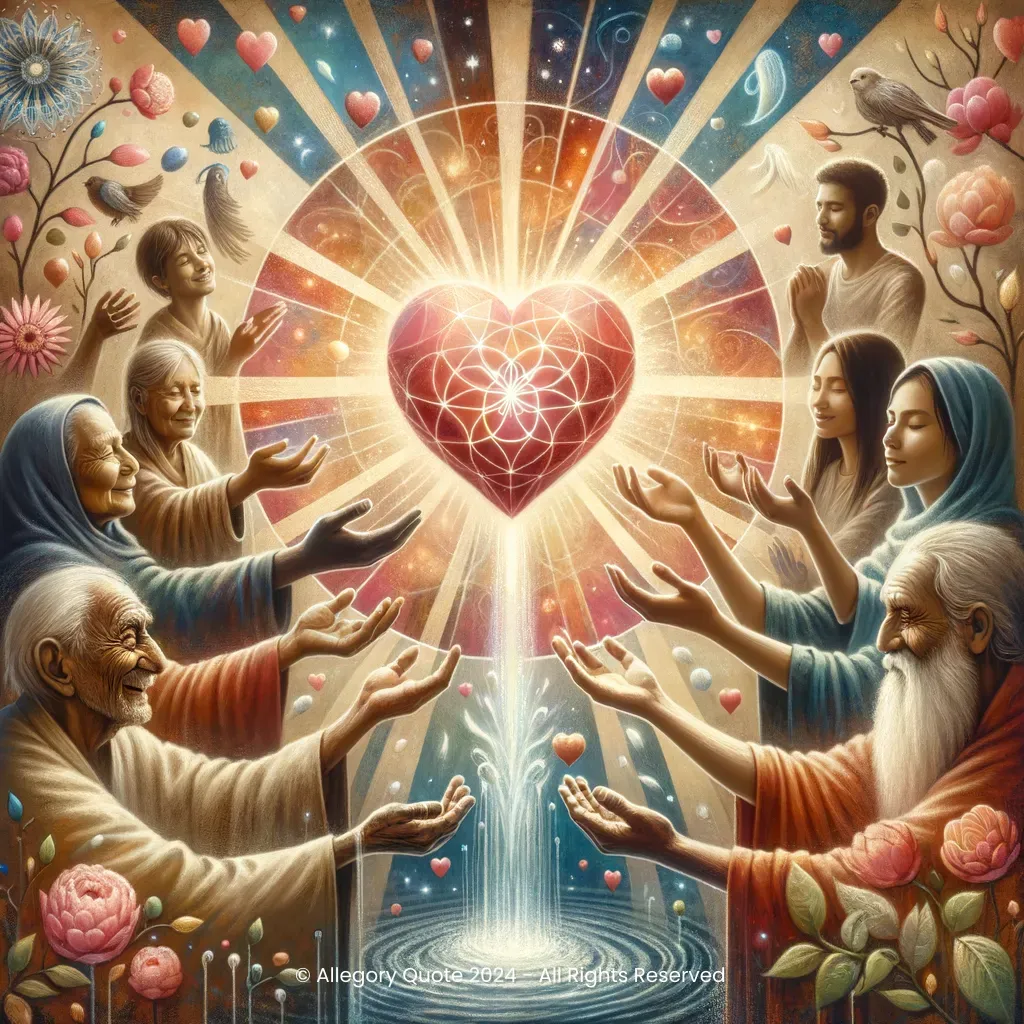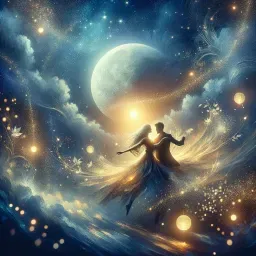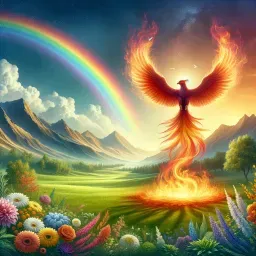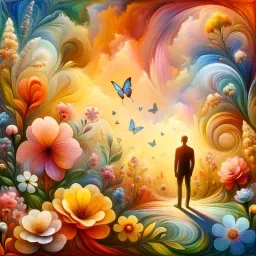It’s called love. It’s why we do it

0
0
0
0
- Meaning
- This phrase underscores love as the fundamental driving force behind actions people take in relationships or passionate pursuits. Philosophically, it aligns with existentialist theories about love's power to provide meaning and connections in life. Psychologically, it suggests that love influences our decisions, behaviors, and motivations more than anything else, forming the core of human experience and relational bonds.
- Allegory
- The heart at the center of the image represents love as the core motivation for human behavior, with the figures reaching out symbolizing our natural inclination to seek connection and understanding through love. The blooming flowers illustrate the growth that love fosters in relationships and life, while the gentle water signifies emotional depth and the nurturing aspect of love. This visual embodies the essence of the phrase, promoting love as the motivation behind all meaningful actions.
- Applicability
- In personal life, individuals can apply this understanding of love's motivating power by prioritizing love in their decisions, deepening relationships, and recognizing that their actions often stem from their love for others. This awareness can lead to more intentional and fulfilling interactions.
- Impact
- This phrase reinforces the notion that love is central to human existence, appearing in countless discussions about relationships, parenting, and even in motivational contexts. It inspires individuals to act out of love and has contributed to various movements focused on compassion, empathy, and connection.
- Historical Context
- The context of this phrase likely spans modern discussions surrounding love in the 20th and 21st centuries, as societal views on love have evolved with literature, psychology, and philosophy influencing and reflecting cultural perceptions of intimate relationships.
- Criticisms
- Some may argue that the oversimplification of love as a reason for actions could overlook other factors such as obligation, social conditioning, or personal gain. Critics might suggest that not all actions can be attributed to love, pointing out negative behaviors disguised as 'love'.
- Variations
- Variations of this phrase in other cultures emphasize love in differing contexts, such as 'A mother's love is the greatest love' (various cultural proverbs), indicating how love's importance is universally acknowledged, but interpretations can vary based on familial context and cultural traditions.
-

You’re never too old to be young.
-

There’s magic in the air tonight, and anything can happen.
-

Sometimes, the smallest things take up the most room in your heart.
-

Venture outside your comfort zone. The rewards are worth it.
-

The very things that hold you down are going to lift you up.
-

I’m trash!
-

We scare because we care.
-

You were my new dream.
-

You can build something beautiful even with the stones you find on your path.
No Comments